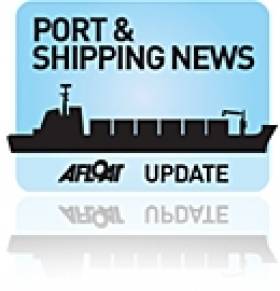Displaying items by tag: Satnav
GPS Backup Goes Live in World's Busiest Shipping Lane
#Shipping - The General Lighthouse Authorities of the UK and Ireland (GLA) have announced that ships in the Port of Dover, its approaches and part of the Dover Strait can now use eLoran radio navigation technology as a backup to satnav systems like GPS and Galileo.
The ground-based eLoran system provides alternative position and timing signals for improved navigational safety.
The Dover area, the world's busiest shipping lane, is the first in the world to achieve this initial operational capability (IOC) for shipping companies operating both passenger and cargo services.
This recent announcement represents the first of up to seven eLoran installations to be implemented along the East Coast of the United Kingdom.
The Thames Estuary and approaches up to Tilbury, the Humber Estuary and approaches, and the ports of Middlesbrough, Grangemouth and Aberdeen will all benefit from new installations, and the prototype service at Harwich and Felixstowe will be upgraded.
Although primarily intended as a maritime aid to navigation, eLoran could become a cost-effective backup for a wide range of applications that are becoming increasingly reliant on the position and timing information provided by satellite systems.
"Our primary concern at the GLA is for the safety of mariners," said Ian McNaught, chief executive of Trinity House, "But signals from eLoran transmitters could also provide essential backup to telecommunications, smart grid and high frequency trading systems vulnerable to jamming by natural or deliberate means.
"We encourage ship owners and mariners to assess eLoran in this region and provide feedback to the GLA on its performance."
P&O Ferries has installed an eLoran receiver on its new vessel Spirit of Britain. She will be based at Dover and is one of the largest passenger ships the busy Dover/Calais route has ever seen.
"Accurate real-time positional information is essential for the safe navigation of ships with modern electronic charts," said Captain Simon Richardson, head of safety management at P&O Ferries.
"Satellite navigation systems are vulnerable to degradation of signal strength and our ships have also experienced occasional loss of signal.
"We welcome the development of a robust alternative to provide redundancy in real-time positional information and we see eLoran as the most effective solution to countering the problem."
Commenting on the announcement, Britain's Shipping Minister Stephen Hammond said: "I congratulate the General Lighthouse Authorities on this initiative which seeks to improve navigational safety in what is the busiest shipping channel in the world, through the development and deployment of technology. I look forward to receiving reports of its effectiveness."
























































